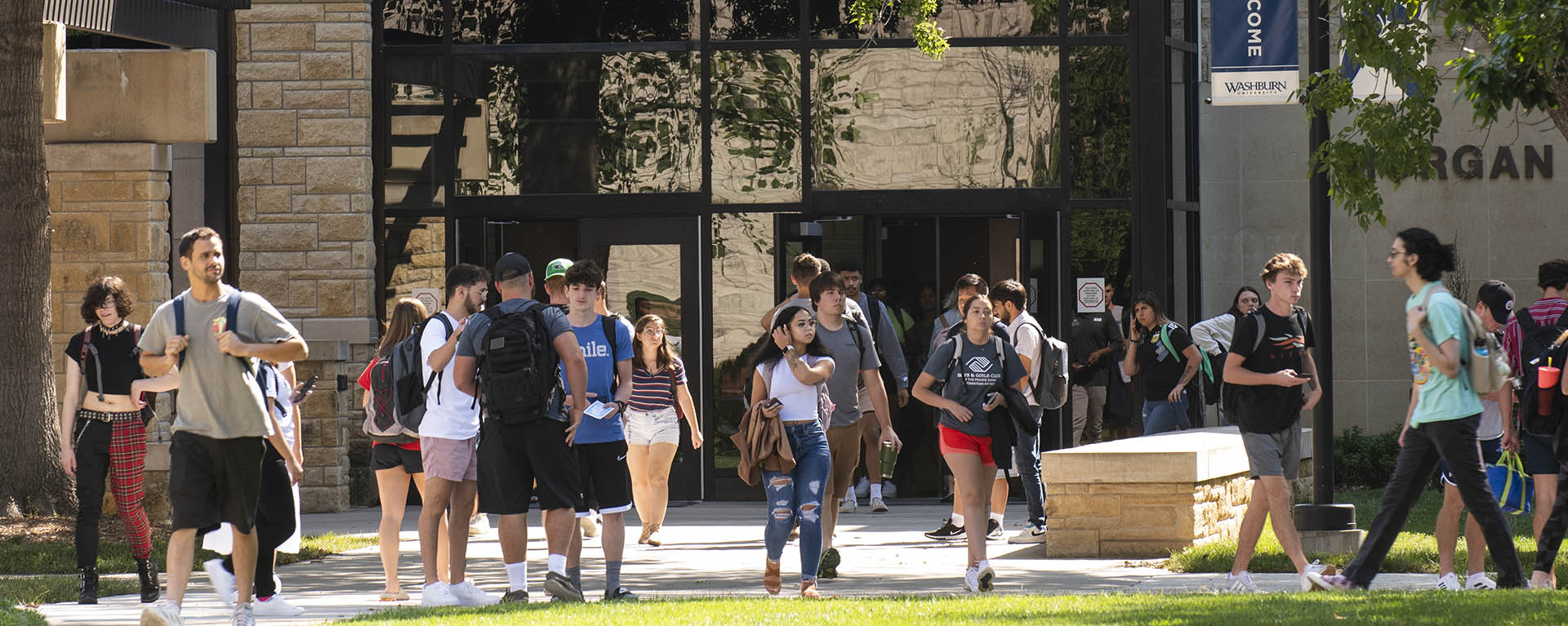
Honors Program Mission
The mission of the Honors Program at Washburn University is to provide highly motivated and academically talented students with enriched educational experiences in and out of the classroom, enabling and empowering them to realize their full potential as critical thinkers, informed global citizens, and agents of change. Toward this end, the program provides curricular and co-curricular experiences supporting, promoting, and rewarding excellence in academic rigor, research and scholarship, leadership, and service learning.
Student Learning Outcomes
Honors courses that fulfill General Education requirements meet several Student Learning Outcomes, which are based on the University Student Learning Outcomes. These goals and the rubrics used to assess them are linked below:
HN 200-level Courses will teach students to:
- Evaluate written, oral (and/or visual information), evidence, and argument for reliability and authority (and/or usefulness). Examples of sources listed include but are not necessarily limited to the following: observation, testimony, measurement, and experimental research.
- Analyze own and other’s assumptions systematically and methodically, and evaluate relevance of contexts when presenting a position.
- Develop well-supported, clearly articulated argument(s) to support a stance and use to justify one or more conclusions.
For additional information, please visit our Student Learning Outcomes assessment rubrics for HN 201 (Humanities), HN 202 (Social Sciences), and HN 203 (Natural Sciences).
HN 300-level Courses will teach students to:
- Develop a coherent body of evidence, sufficient to support an argument, through the evaluation of an array of sources for meaning, relevance, and reliability.
- Formulate a specific position (perspective, thesis/hypothesis) that accounts for the complexities of the issue and weighs the positions taken by others.
- Create organized, well-supported, clearly articulated argument(s) to construct a stance and use to justify one or more conclusions.
For additional information, please visit our Student Learning Outcomes assessment rubrics for HN 301 (Humanities), HN 302 (Social Sciences), and HN 303 (Natural Sciences).
GET IN TOUCH WITH Honors
Honors
Plass Learning Resources Center, Room 2017
1700 SW College Ave.
Topeka, KS 66621
Connect
Phone: 785.670.2062
honors@washburn.edu
![]()
![]()

